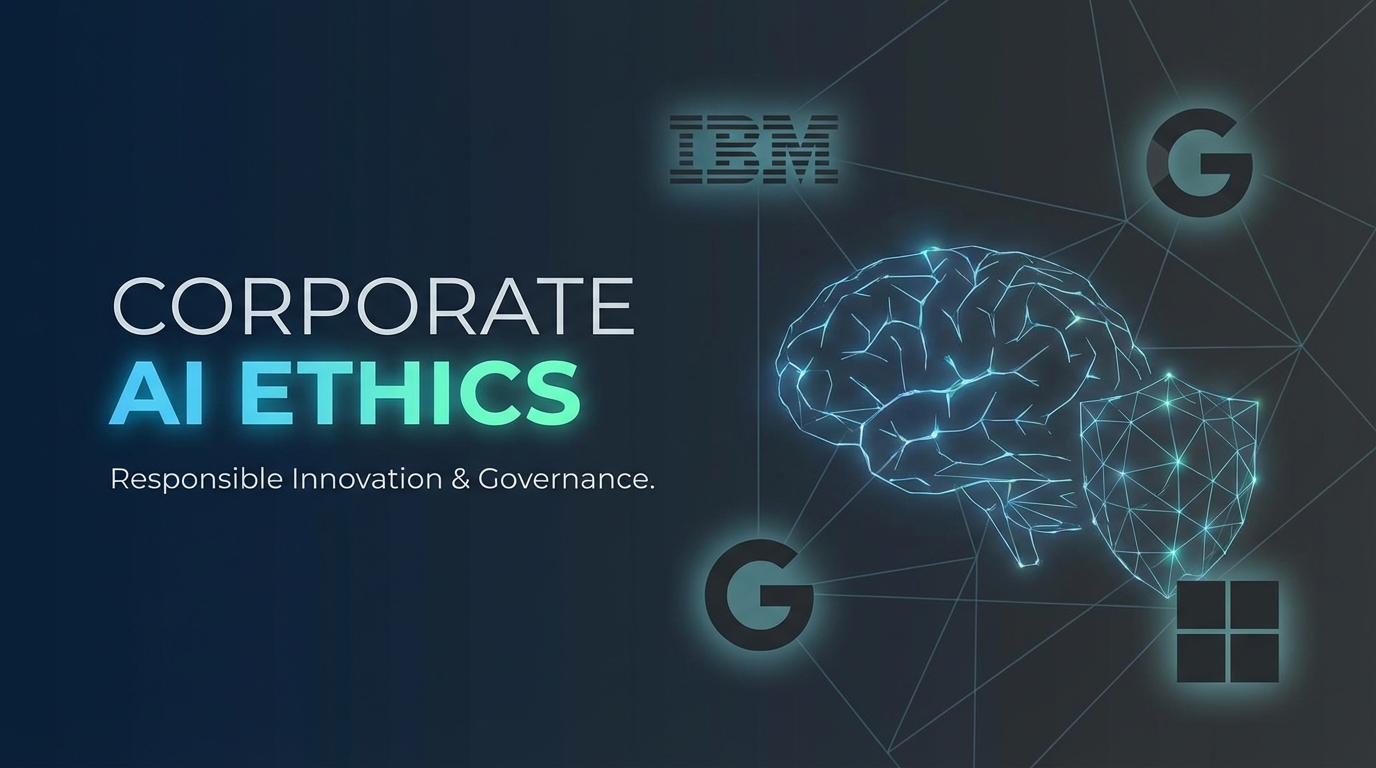Ethical AI in Major Corporations
How the Tech Giants Manage Governance

How do the companies leading the AI revolution ensure their products remain ethical? Let's examine the frameworks of the world's most influential tech organizations.
IBM: The Cognitive Ethics Board
IBM uses an internal Cognitive Ethics Board to guide development. They've implemented a company-wide educational curriculum and actively participate in global scientific initiatives like the White House AI workshops.
Microsoft: Responsible AI Framework
Microsoft guides its efforts through a "Responsible AI" framework focused on fairness, reliability, and safety. They emphasize weaving these principles into every product, from Azure to Office.
Google: AI Principles
Published in 2018, Google's principles focus on social benefit, avoiding unfair bias, and scientific excellence. They've faced internal debates, highlighting the struggle between profit and ethical co-existence.
Amazon: Red-Teaming & Security
Amazon's approach emphasizes adversarial-style testing (red-teaming) to identify bio, cyber, and societal risks. They also focus on content verification, such as watermarking AI-generated media.
SAP: Ethical Automation
For SAP, AI-enabled business automation is the core focus. They've placed heavy emphasis on ensuring that the automation underpinnings of massive enterprises follow a clear ethical guideline.